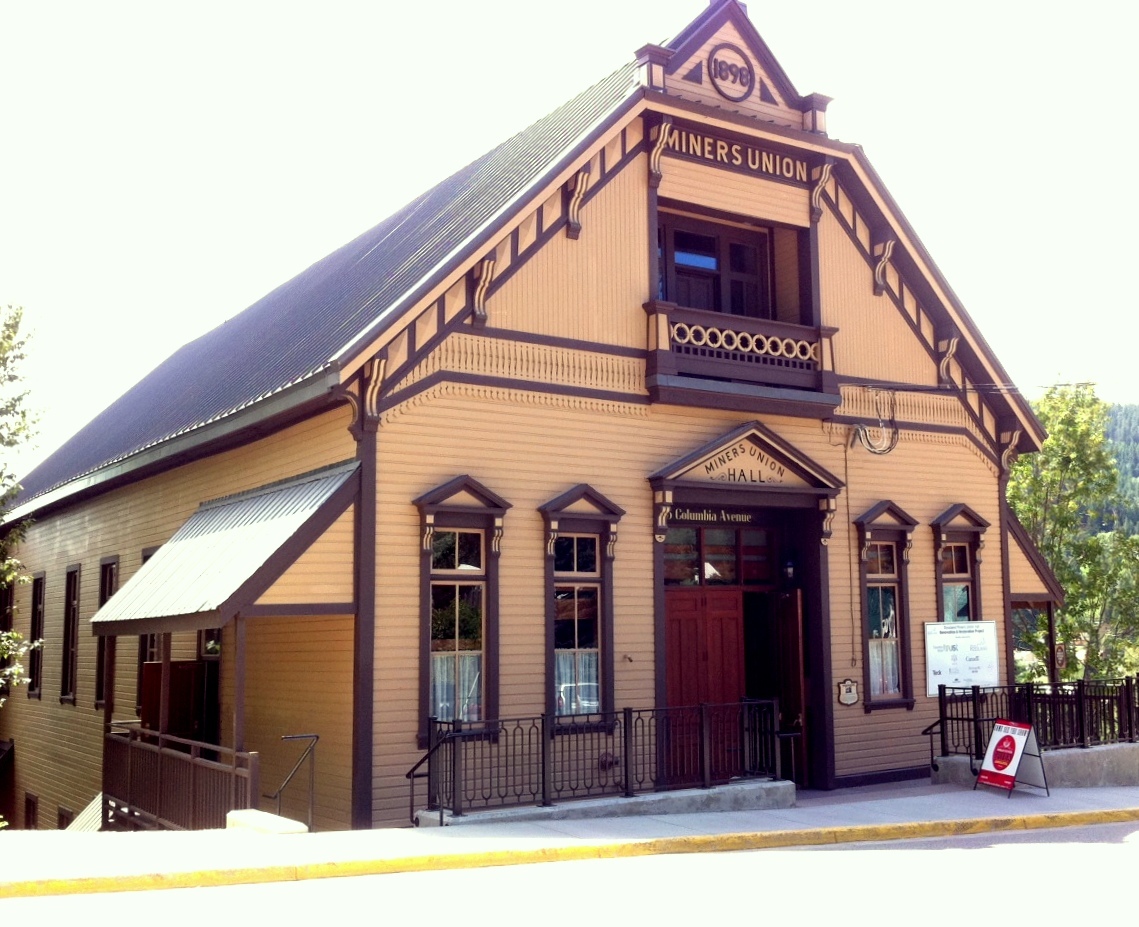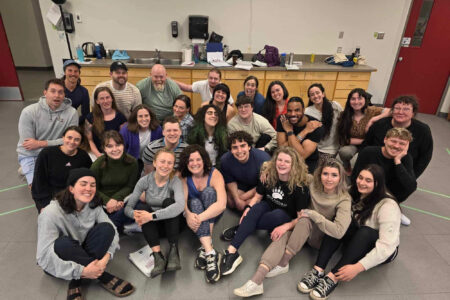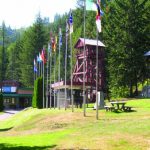Rossland City Council Meetings, January 10, 2022
One evening, three meetings! Short-term rentals, the required but contentious second access route to Redstone, the Community Health Care Centre idea, decisions on dumpsters and COVID Community Support Funds, the need for some clearer addresses . . . and more.
Present: Mayor Kathy Moore, and Councillors Dirk Lewis, Andy Morel, Terry Miller, Stewart Spooner, Janice Nightingale, and Chris Bowman. Staff: CAO Bryan Teasdale, Deputy Corporate Officer Cynthia Año Nuevo, and City Planner Stacey Lightbourne. Manager of Recreation and Events Kristi Calder attended by Zoom, as did CFO Mike Kennedy.
COMMITTEE OF THE WHOLE:
This CoW session was dedicated to reviewing the City’s Short-Term Rental Policy and discussing ideas for information-gathering, and potential goals for the policy.
Spooner alluded to a “tool kit” that Lightbourne had provided to Council members and suggested that the best approach to reviewing the policy is to decide what we want to achieve before figuring out how to do it. Miller commented that efforts to improve affordability could be “a two-edged sword” – he can imagine that many people might have to have a secondary suite to afford a home. Nightingale distinguished between “principal residence” and “principal dwelling unit.” She noted that she thinks one thing Rossland has unintentionally done is concentrate rentals in residences, perhaps to the detriment of commercial accommodators. Bowman commented on the tension between the increase in value of homes with short-term rental units and zoning, and the “devaluation” of neighbouring properties. Lewis spoke about the availability of rentals, and about the difference in income-earning capacity between long-term and short-term rentals. Morel talked about Rossland’s attempt to provide more of a level playing field for owners of rental units. Spooner opined that nothing Council can do will fix the affordability problem; but he noted that they do have control over short-term rentals and zoning. He said that allowing short-term rentals in secondary suites and “coach houses” has been eliminated in Squamish.
Moore spoke about offering choice to visitors; Nightingale pushed back, saying that there are too many service employees who cannot afford a place to live, and that the well-being of the community should take priority over offering the utmost choice to visitors.
Bowman asked Lightbourne how much time a re-zoning application takes her and her department; and whether or not it would help to have a limited intake period; Lightbourne indicted that she didn’t think that would be helpful. She said that the City ha been receiving “way too many applications for short-term rental zoning to handle, administratively.” Spooner suggested that short-term rentals should not require special zoning.
Spooner suggested that the City’s goal should be to protect housing availability, and he supports keeping short-term rentals out of secondary suites. Nightingale thought that Spooner’s suggestion supports the tourism industry and improves housing availability.
Morel suggested the City should put responsibility for housing their workers on the seasonal business operators. Lightbourne acknowledged that it may be time for Rossland to consider that, though it’s a challenging ask.
Lewis pointed out that there are other people than tourism-service workers who need affordable accommodation: students, and workers in other local businesses. Nightingale agreed with Spooner’s suggestion of taking the short-term housing out of zoning. Spooner added that he feels the current short-term rental policy is unfair in many regards. Miller said he felt “starved of good data.” He would be happy to continue the moratorium on STRs for the next six months, while the City continues to review the issue; he’d like some information on how STRs actually have affected the quality of life in neighbourhoods around them.
Moore suggested that each Councillor make a list of the information they would like. Lewis suggested considering the consequences of pulling STRs out of principal residences/secondary suites. Lightbourne said she thought the main issue would be enforcement. Spooner noted that Squamish and Canmore impose significant fines for non-compliance.
The Committee of the Whole agreed on a recommendation to a regular Council meeting, to continue the moratorium on accepting applications for STR zoning until the City has a new policy in place.
PUBLIC HEARING:
On a 20-lot subdivision at Redstone:
The public was invited to provide input on an application to amend the Zoning and OCP designation for properties located south ofRedstone Drive, to subdivide and develop into approximately 20 lots.
The City received no written submissions on the topic, and people attending the meeting seemed concerned with the required – by the Ministry of Transportation –secondary access road, rather than the proposed new subdivision.
A resident near the secondary access road that will be pushed through to Redstone via Queen Street made a case that circumstances have changed over the past 17 years. She pointed out that 88% of the homes in Redstone are primary residences, and asked that the decision about the Queen Street route be revisited. Moore pointed out that the secondary access is required; it’s not negotiable. The resident agreed that she understands that, but wants a different route to be explored.
Another resident asked whether the secondary access could be restricted to emergency access only, or whether it was to be open for all traffic. Lightbourne explained that the expectation was that the secondary access would be for full access, that it’s written in the OCP, and is expected by emergency services, and the Ministry of Transportation.
Cary Fisher spoke, explaining some of the history of Redstone, and emphasizing that Redstone is part of Rossland. Another resident spoke in support of a secondary route – he said he’s all in favour of looking at different route options, but wants the secondary access road installed.
Another resident wants the City to consider whether the new road will be able to handle the amount of traffic. Moore pointed out that the road will have to meet all the engineering standards. Cary Fisher commented that traffic studies were done.
Another resident is concerned about having all the trees removed, and wants trail connections. She asked how the recommendations from the environmental report will be addressed. Lightbourne explained that they will be addressed in the development permit process.
A resident of Queen Street asked whether there will be consideration of any other possible route(s) for the secondary access road.
REGULAR COUNCIL MEETING:
Public Input Period: No one took advantage of the opportunity to express their thoughts.
Delegation: Lower Columbia Community Health Care Centre
Linda Sawchenko by phone, and Winn Mott by Zoom, spoke to request a letter of support for their proposal to develop a Community Health Care Centre. Frank Marino was scheduled to speak too, but came down with Covid shortly before the meeting. In addition to their spoken presentation, they provided 32 pages of written material in support of their request, included in the Council package and available to the public.
They explained that a Community Heath Centre is a “multi-sector health and healthcare organization that delivers integrated, people-centred services and programs that reflect the needs and priorities of the diverse communities they serve. Community Health Centres are created by not-for-profit organizations and co-operatives that are committed to providing comprehensive, accessible, affordable, and culturally-appropriate services through a collaborative team approach.”
Another definition says, “ A Community Health Centre is any not-for-profit corporation or co-operative which adheres to all five of the following domains:
1. Provides interprofessional primary care
2. Integrates services/programs in primary care, health promotion, and community wellbeing
3. Is community-governed and community-centred
4. Actively addresses the social determinants of health
5. Demonstrates commitment to health equity and social justice”
They listed the main factors in support of their proposal for a Community Health Centre:
— Too many people (17%) have no primary care physician
— Leading to additional demands on the local hospital’s Emergency Ward
— Gaps in health care services
— Trends leading to loss of availability of primary care physicians
They explained, “It is not going to be a big, central building somewhere – it will be a network of clinics in the different communities.”
Sawchenko reported that there has been a lot of support, but also many questions on what the details will look like. Moore explained that Council will discuss the request make their decision later.
Council Decision on that additional dumpster:
Natural Control Alternatives, represented by Scott and Samantha Murphy as a delegation at the December 2021 Council meeting, had requested permission and a location for a third large community waste bin, in addition to the two located near the Museum parking area.
A motion to support the Natural Control Alternatives Society request for support of lease renewal activities on Ministry property (i.e. Museum Parking Lot), but to deny the request for placement and/or maintenance activities with respect of a third waste bin being placed within the City, CARRIED unanimously.
Bylaws:
Subdivision and Development Servicing Bylaw # 2748: This bylaw replaces “City of Rossland Subdivision and Control Bylaw No. 1999” and all its schedules and amendments, and is intended to “regulate the Subdivision and Development of land,” and “ to provide orderly and aesthetically pleasing Development; to preserve the established amenities of the City; and to ensure that Subdivisions and Developments are appropriately serviced and best suited to the use for which they are intended.” The bylaw and its schedule and appendix comprise 91 pages of material, included in the Council package.
A motion to adopt the bylaw CARRIED unanimously.
Zoning Amendment Bylaw # 2779 – 2330 St. Paul Street, allowing short term rental use: a motion to give the bylaw third reading, and a further motion to adopt the bylaw, both CARRIED unanimously.
Fees and Charges Amendment Bylaw # 2781, 2021: a motion to adopt the bylaw CARRIED unanimously.
Zoning Amendment Bylaw # 2774 – 811 White Tail Drive: Council discussed the application for rezoning, and thepreponderance of neighbourhood opposition expressed at the Public Hearing in December. A motion to deny the application for zoning to permit short-term rental zoning for the property CARRIED unanimously.
Staff Reports and Updates:
COVID-19 Community Support Fund (C2SF) Applications — January 2022 Intake: The Council materials on this topic explain the background: “At the October 18th, 2021, Regular Meeting of Council, Council approved a plan for deployment of funds; including the allocation of $50,000 in 2021 and $50,000 in 2022 to create the City of Rossland COVID-19 Community Support Fund (“the Fund”). The Fund takes the form of one-time grants of up to $5,000 to eligible community groups to help offset costs related to financial pressures related to COVID-19. Additional details; including the application form and supporting documents can be found online at
There were two applications to consider at this meeting: St. Andrews United Church and Rossland Council for Arts & Culture each requested a grant of $5000. There is a total of $72, 643 remaining in the fund.
Spooner and Lewis and Bowman felt that the St. Andrews application was worthy, but had not established the required link to losses related to Covid; Nightingale, Morel and Bowman agreed, and Moore pointed out that if they can establish that link, they can re-apply.
A motion to grant the request from the Rossland Council for Arts & Culture CARRIED, with comments that they had made the necessary connection to losses from Covid.
Council 2019-2022 Strategic Plan (2022 Update Review): Staff requested that Council review the Strategic Plan and provide any further input for 2022.
Nightingale objected to the note that appears to require constantly increasing levels of customer service. Morel did not agree; he wanted to leave the word “increase” in. Moore wanted to determine whether Council agrees with the aims, rather than wordsmithing. Miller wanted to have some opportunities for dialogue between residents and staff to relieve tensions about things like snow removal and deposition, parking, and so on.
Councillors discussed how much, if any, emphasis the City still needs on growth and attracting new residents, and made some adjustments to the priorities: item # 2.3 was moved to a high priority; item # 2.4 changed to green; # 2.8, climate change adaptation, changed to high; # 1.3 changed to green; the . recreation master plan (# 5.4) changed to red.
Spooner pointed out that affordability is no longer one of our strengths; Moore said it depends on which areas we’re compared with, but a majority agreed to delete it as a strength. Councillors also agreed to delete the reference to Rossland as an “oasis from climate change” – Moore noted, “yes — that’s delusional.”
Council remuneration: Council considered the information on remuneration provided by staff. Any changes would result in a change in pay for the next council, not this one. In the list of council remuneration in 24 comparable municipalities (including Rossland) provided by staff, only one had lower remuneration than Rossland for its council members, and that was Houston (population 2,993). Council made no decision on remuneration at this meeting, but if the pay for mayors and councillors was averaged across the 24 communities, it would result in a mayor receiving $28,531 yearly; our mayor currently receives $18,691. The average pay for councillors for all 24 communities is $14,529 per annum; the annual pay for each Rossland councillor is currently $9,532. A motion directing staff to continue work on the topic CARRIED.
Development Variance Permit Application – 2690 Iron Colt Avenue: The applicant wants to establish a solar panel installation in the only viable location – toward the back, NW portion of the lot — which requires a variance to reduce the side setback requirement. A motion to grant the variance, conditional upon the applicant establishing a landscaping screen to hide the solar panel installation from the next-door neighbour’s view, CARRIED unanimously.
Council then went through the monthly exercise of approving the City’s expenditures for the past month.
Third Avenue Infrastructure Improvement Project: A motion directing staff to develop and submit a proposal for a grant under the Canada Infrastructure Program (British Columbia) Environmental Quality (EQ) Program for the Third Avenue Infrastructure Improvement Project, in the amount of $1,790,000 with a City contribution of $477,300, CARRIED unanimously.
Information only — Update on a Recreation Master Plan for Rossland: The City allocated funds from the Covid Safe Restart funding to hire a firm to conduct research and obtain public input, and published a Request For Proposals on December 1, 2021, with a closing date of December 31, 2021; there were no responses to the RFP. The City will re-evaluate the RFP and adjust the timeline for the project, and re-issue the modified RFP.
For Information Only – 2021 Corporate Management Work Plan — Q4 Progress Report:
Moore expressed her appreciation for all the staff work reflected in the report.
Regular City Reports:
Building Permit Report December 2021
Building Permit Inspection by Type Report December 2021
Step Code Energy Rebates December 2021
Public Works Report December 2021
Water Production Report December 2021
Bylaw Enforcement Report December 2021
Rossland Midtown Construction Report December 2021
Updated Task List
Members’ Reports:
Nightingale moved to send a letter of support for the Community Health Centre; the motion CARRIED unanimously.
Miller reported that there will be some changes to make various addresses in Rossland easier for emergency response personnel to find, including renaming some alleys and clarifying where streets do not continue or exist. The need was obvious after an incident in which emergency personnel could not find an address that appeared to be on a certain street, but was not accessible by that street — which doesn’t actually exist where the address is located — and the delay was believed to have caused or contributed to someone’s death.
Winter Carnival question: many of the events have been cancelled for other reasons than Covid – for example, the Bobsled race is cancelled because no insurance is available; watch for information coming out about what events will be happening.
Lewis noted that the new ice slide by the ball diamond is being appreciated, and Moore added that the outdoor ice rink seems to be well-used.
The meeting adjourned, and your reporter trekked home in the dark, wishing for more snow, and thinking sympathetic thoughts about the many people who now have, or are recovering from, the highly transmissible omicron – or other variants.
























